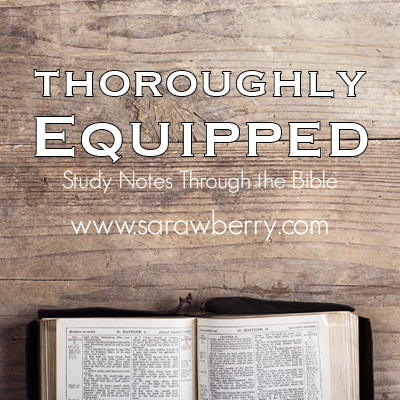Today’s reading includes Genesis 37:1:38:30. However, I am still studying back in Genesis 35-36
After Jacob buried the idols of his household, he moved forward in the directive God had given him to move to Bethel and settle there, and build an altar to God.
6 Eventually, Jacob and his household arrived at Luz (also called Bethel) in Canaan. 7 Jacob built an altar there and named the place El-bethel (which means “God of Bethel”), because God had appeared to him there when he was fleeing from his brother, Esau.
Genesis 35:6-7
“Eventually” (Isn’t that usually the case! Sometimes it takes a while to see the fulfillment of God’s plan but even the travel and the wait is part of the plan!) Jacob and his household arrived at Bethel, the place where he first met God face to face, now the place where he renewed his relationship with Him. Jacob built a stone altar and once again called the place “El-Bethel” which meant “God of Bethel”.
And in this time of renewal, God reminded him of some very important things. God reminded Jacob that had a new name, Israel, which means a prince of God. And then God revealed to Jacob one of His own names, El-Shaddai, which means “God Almighty” or “All-Sufficient One”. El-Shaddai has a great depth of meaning. El is the word for God and what follows after is indicative of the nature and character of God. In the Old Testament El Shaddai occurs 7 times. (There is that holy number of completion and perfection!) According to the resources from Blue Letter Bible study references, many scholars believe the word Shaddai is derived from the Hebrew word “shad” which means “breast”, representing nourishment as well as being close the heart, as well as derived from another ancient language, Akkadian, with the word Šadu, meaning “mountain,” suggesting strength and power. This refers to God being completely nourishing, satisfying, and supplying His people with all their needs as a mother would her child. In addition, He is all powerful, the holy One whose strength is all sufficient. Connected with the word for God, El, this denotes a God who freely gives nourishment and blessing, He is our sustainer and our strength.
And then we see for the third time that God symbolically goes back to the beginning. He gives the same command to Jacob that He had given to Adam and then to Noah. “Be fruitful and multiply.” In future chapters, we will continue to see how Jacob was indeed fruitful and his descendants did indeed multiply. Abraham and Isaac (and even Adam) each had one son of promise. But Jacob was a game changer. At this point he had 11 sons and right after this important event, his twelfth son was born. Remember the holy numbers? The number twelve encompasses the family of God, representing all God’s people, and reminds us of the covenant or unending promise of relationship between God and his people. Jacob would have 12 sons of promise, who would become the twelve tribes of Israel.
Before Jacob left Bethel, we see Jacob marking this spot with a stone of remembrance. He set up the stone and anointed it with oil, which signified the holiness of the moment. He did the same thing when he first met God at Bethel when he was fleeing from Esau. This time, he also poured wine on the stone. Why did he add the poured-out wine? Perhaps it was a symbol of his wealth and the acknowledgement of the faithful care and prospering the Lord had provided him. When he first poured out oil on a rock at Bethel, he was all alone, fleeing in fear. On this second meeting with the Lord, he was surrounded by a large family and an abundance of possessions. God had indeed been faithful to him and he intended on being faithful to God.
Later, in the days of Moses, drink offerings were required with every bloody sacrifice. Numbers 28:15 indicates that every bloody sacrifice was to be accompanied by grain and wine offerings. Perhaps Jacob was acting in a prophetic way, not only as a symbol of the future days of Moses, but also pointing toward the Ultimate Bloody Sacrifice, Jesus, the Lamb of God, who Himself declared that the wine represented His blood shed for us.
Whatever the reason, Jacob obeyed God and built the altar. Some scholars believe that the first altar stone he anointed twenty-years prior would have been inserted into the new stone altar. This could symbolize his acknowledgement of God’s faithfulness in the past, present, and future. Jacob would need that symbol of God’s faithfulness, as the next step of his life involved grief. His beloved Rachel died giving birth. In her pain and grief she named the baby, Benoni, son of my sorrow. How wise of Jacob to override that name and call him Benjamin, son of my right hand. What devastation Benjamin could have endured if he was forever seen as son of sorrow. Jacob, Benjamin’s earthly father, saw so much more in his son. The right hand of the father was a place of great honor, not normally given to the last son, but to the firstborn. And yet Jacob was reflecting the nature of our Heavenly Father. No matter the sorrow we have endured or caused, He calls us His own, beloved child. He sent His firstborn away from His right hand for a season, that we may become children of God. Praise to our El-Shaddai!


